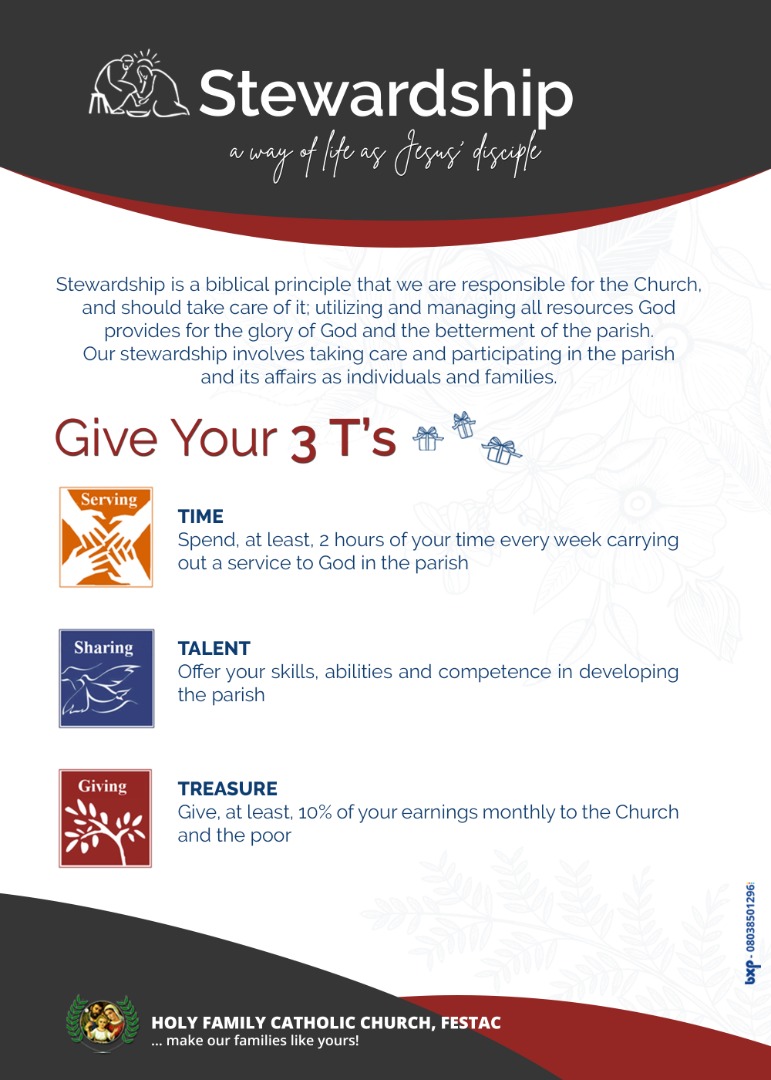
The Future of Humanity passes by Way of the Family (St. John Paul II)
RESPONSIBLE PARENTHOOD.
Welcome to our series on God’s plan for peace and happiness in your marriage as we begin to discuss Responsible Parenthood.
“For this reason, a man shall leave his father and mother and be joined to his wife, and the two shall become one flesh” (Mt 19:5; cf. Gen 2:24).
From generation to generation, the institution of marriage has been the cornerstone of family life and societal well-being. In the previous sessions we discussed the plan of God for marriage – your wellbeing and happiness and the very vital component of marriage as a communion of love and life. It is important that we continue to rediscover the value of marriage and family life in our contemporary society riddled with so many challenges for living marriage and family life to the full. we will continue to explore deeper the meaning of marriage and its vital component – RESPONSIBLE PARENTHOOD.
Let us begin with some basic questions; please take time to reflect on your experience of marriage so far:
- What is the purpose of the Christian marriage?
- What do you understand by responsible parenthood?
- Should couples leave their family size entirely to chance?
- What are the challenges to responsible parenthood today?
- What is Natural Family Planning?
The fundamental purposes of marriage
The Church teaches us that Marriage has two purposes to which it is oriented, the good of the spouses and the procreation of children. Thus, marriage is both unitive and procreative and it is inseparably both. That is to say that, the unitive aspect of marriage and its procreative aspect cannot be separated.
The unitive purpose of marriage
We have already learnt in the previous sessions that husband and wife are strongly united in a bond of love (COMMUNION) and that their bond or union leads to life; Life for both individually and as a couple and life to their children that God has ordained to bring into the world through their union of love! The call to love as Christ loves is stamped in our bodies as male and female; “the body’s capacity of expressing love, that love precisely in which the person becomes a gift – by means of this gift – fulfills the very meaning of being and existence”. Love is indeed the call of every human person. This self-giving in love “becomes most evident when spouses … bring about that encounter which makes ‘them one flesh’”[1]. Marriage is thus a communion of persons, a communion of love between husband and wife meant to be the source of the family and society.
In the marriage rite, a man and a woman standing before the altar are asked “Have you come here freely to give yourselves to each other in marriage? Do you promise to be faithful until death? Do you promise to receive children lovingly from God?”[2] In short they are asked if they will love as God loves. Marriage necessarily involves the whole person. That is what the vows are about — a free and total promise of faithfulness, permanence, and openness to life made to the other, in good times and bad, through thick and thin. “Responsible fatherhood and motherhood” express a concrete commitment to carry out this duty, which has taken on new characteristics in the contemporary world.
[1] Pope John Paul II, Letter to the Families, (1989) no. 12
[2] Roman Missal, Marriage rite


